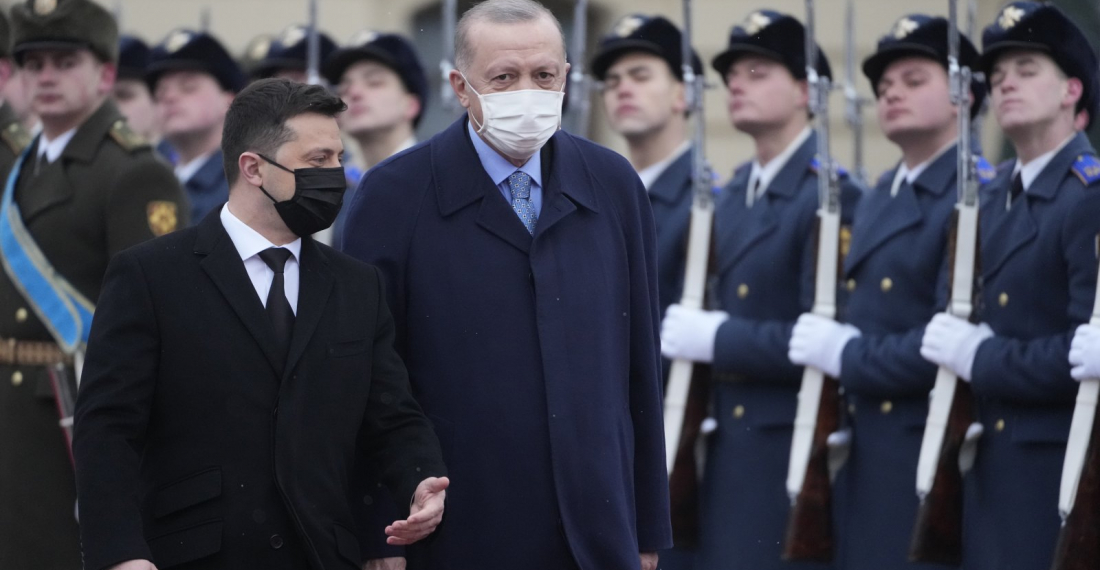Turkish president, Recip Tayip Erdogan, arrived in Kyiv on Thursday (3 February) with a message of support and solidarity for Ukraine's independence and territorial integrity, but also urging all sides in the current stand-off with Russia to exercise restraint. "As a country in the Black Sea vicinity, Turkey invites all parties to exercise restraint and use dialogue to bring peace to the region", Erdogan said at the start of the visit.
Asked what Turkey can do in the present situation, Erdogan replied:
"Today, we will have our meeting with Mr. Zelenskyy. After a visit to China, (Russian President Vladimir) Putin has told us he would travel to Turkey," he said. "Without holding these two visits, these talks, it would not be right to think about what we can do."
"God willing we will successfully overcome this problematic period between these two countries," Erdoğan said.Erdogan also said Turkey is "closely following" developments, adding: "On every platform, we voice Turkey's support for Ukraine's territorial integrity and sovereignty."
Ukraine and Russia have been locked in conflict since hostilities in the eastern Donbass region broke out in 2014 after Russia illegally annexed the Crimean Peninsula.
The Turkish president also spoke about the strengthening of bilateral relations between the two countries. Serious progress has been made in bilateral relations with Ukraine in recent years, especially in the fields of trade, investment, tourism, and the defense industry, said Erdoğan.
Despite the coronavirus pandemic, Turkey hosted more than 2 million Ukrainian visitors last year, he said and added that the two countries' bilateral trade volume last year increased by nearly 60% compared to 2020, reaching $7.5 billion. Erdogan said Turkey is taking firm steps towards its target of raising the trade volume to $10 billion.
The president also said he would pay special attention to the situation of the Crimean Tatars, which is one of the main elements of bilateral relations with Ukraine and will be at the top of the agenda during meetings in the Ukrainian capital Kyiv.
"I believe our talks in Kyiv will contribute significantly to the strengthening of bilateral relations with Ukraine," said Erdogan..






